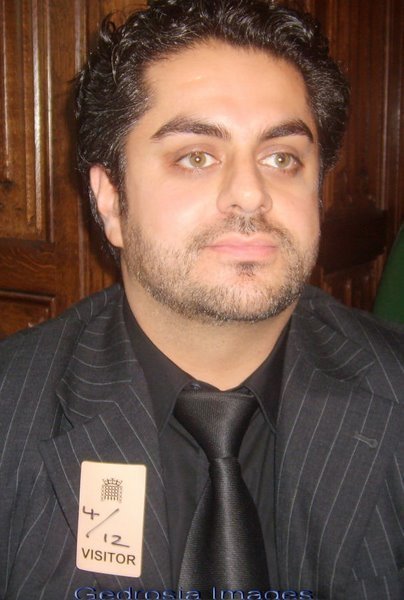Mehran Baloch is the youngest of six sons of veteran Balochistan nationalist leader Nawabzada Khair Bukhsh Marri. Educated in Oxford, he is an international voice, and arguably the most articulate and passionate one, of the Balochistan case, especially at the United Nations and western think-tanks where his voice is considered critical.
Living in Britain for over 20 years now, Mehran was thrown into spotlight in March 2007 when it emerged that the Pervez Musharraf-led government of Pakistan wanted to trade Mehran against Rashid Rauf, a British terrorist suspect from Birmingham, who was in the custody of Pakistan at the time and wanted in Britain on a number of terrorism charges.
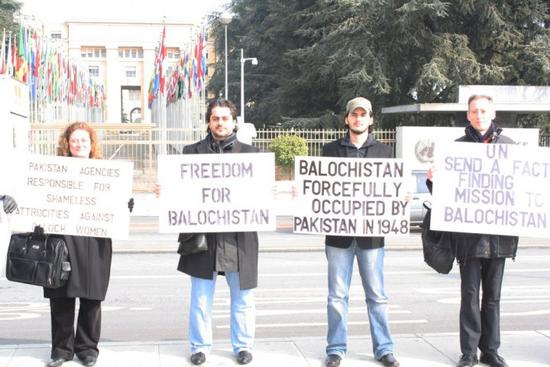
When the details were published, it became known that the Pakistani establishment was attaching a huge price tag to the extradition of the young Marri.
He fled from London, awakened to the rude reality that British intelligence was monitoring him round-the-clock on Pervez Musharraf’s personal request.
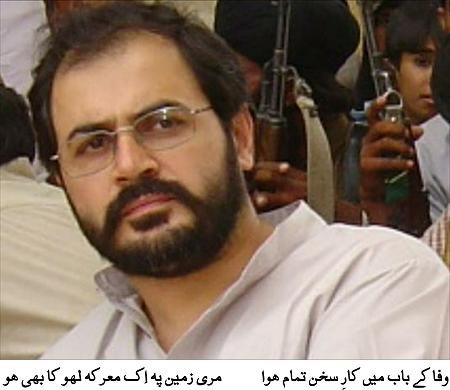
Mehran, who has shunned Pakistani media for over three years despite repeated requests for interviews, spoke to TNS in London in an exclusive interview and emphasised uncompromisingly that too much blood had been shed of the Baloch to negotiate with the incumbent setup. But, he also singled out the redundant Baloch sardari system for being in a criminal pact with the federal government in order to hold back the progress of poor Baloch masses. He minces no words in his harsh criticism of Baloch sardars, including Aali Shahzain Bugti and the current Khan of Qalat Mir Suleiman Daud Khan, whom he calls “a directionless stuntman”.
TNS: What is Baloch movement for you? How do you define it?
Mehran Baloch: It’s a retrospective movement. The new generation has revived the origins of the Balochistan movement. There was a time when the occupation and forceful assimilation of Balochistan by Pakistan was accepted by many, but my generation with the guidance of leaders like my father, have been successful in reviving the cause with the aim of achieving a permanent long-term solution. This generation cannot be misled by packages and privileges such as the one recently announced by the Pakistani Prime Minister Yousuf Raza Gilani. I have full faith in the new generation and I believe the new generation is more aware of their rights and are firmly committed to achieve the goals set by our great leaders. Speculating on day-to-day political matters is not an option for us.
TNS: You are active at the international level to raise awareness about the Balochistan issue. What successes have you achieved?
MB: I was the only Baloch to address the human rights violations committed in Balochistan by Pakistan in 2001 before the United Nations Human Rights Commission. Things have considerably changed since then. I had an uphill task. People used to think Balochistan was one of the states of former USSR or just a small and poor province of Pakistan. I am proud to say I have worked hard on my own, and without a team, and today the world knows about our issue. Now people know who we are. There are more people working on highlighting the plight of the Baloch nation internationally, including non-Balochs such as Peter Tatchell, Selig Harrison, Wendelin Johnson and Charles Graves, to name a few.
TNS: Is it correct that the biggest antagonist you face at the world stage is the Organisation of Islamic Conference (OIC)?
MB: That is absolutely correct. Pakistan has a lot of power in the Islamic world as it provides its services to a number of Islamic states in legal and illegal, moral and immoral ways. The Islamic states return the favour by supporting Pakistan at international forums and turning a blind eye towards Balochistan. The OIC has become an organised Islamist mafia, hijacked by Pakistan.
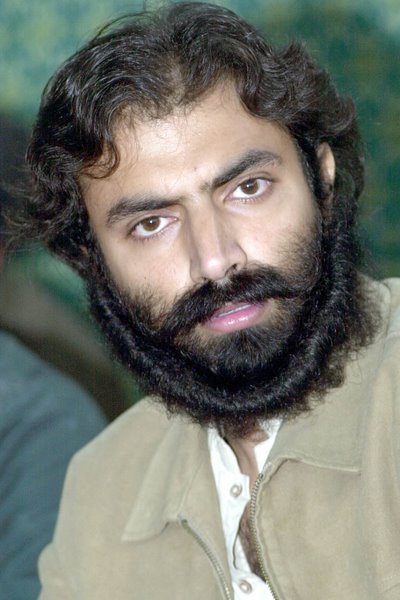
The western countries, on the other hand, operate differently; they listen to your point of view and grievances as long as you are not working under the influence of some sinister agenda. Though our movement is based on secularism, patriotism and human rights, unfortunately due to the vested interests of western superpowers in this region, they need to oblige Pakistan.
TNS: Does the current regional geo-political situation favour your belligerent position?
MB: The current situation is favourable to us because the United States, Nato and ISAF forces are operating in Afghanistan and along the border. They are in a better position to see things for themselves, whereas before they totally relied on Pakistan for all kinds of information, which Pakistan conveniently manipulated for its benefit. Now the international ground forces as well as American drones, which operate in Pakistan, clearly see the ground realities for themselves and no longer have to rely on the Pakistan army for intelligence. These powerful countries now have a better insight into the situation and they know very well about the atrocities taking place in Balochistan at the hands of the Pakistani army.
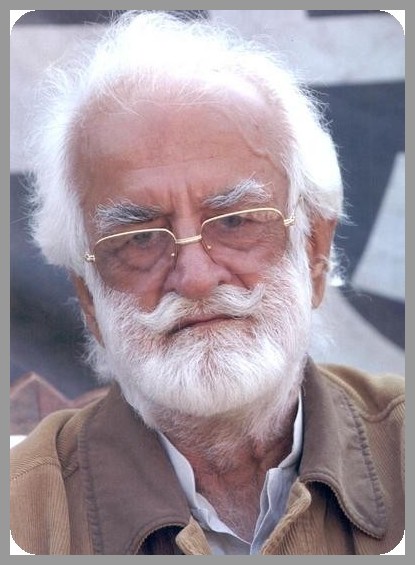
TNS: General (rtd) Pervez Musharraf wanted you extradited from the UK and you topped his most wanted list? Are you still being hounded?
MB: There is no doubt that my life is under persistent threat and intelligence agencies are after me.
Faiz Baloch and Hyrbyair Marri
Musharraf and his incompetent Inter-Services Intelligence were so unintelligent that they didn’t even check the basic fact that I am a British national and have never held a Pakistani passport. I was not even born in Pakistan. Pakistan spent vast resources and used state influence to get me, my brother Hyrbyair Marri, Faiz Baloch and numerous other advocates of Baloch human rights victimised by foreign governments. Due to the extraordinary situation in Britain, I was forced to live abroad fearing that UK authorities would arrest me on false allegations as they did with my brother, Hyrbyair, and swap me with its home-grown Islamic extremists in Pakistan to please dictator Musharraf and the ISI.
Now they realise that they have wasted their taxpayers’ money on victimising us and understand that we are not Islamic fundamentalists planning to “blow up Britain”. Even though now they realise that we have our own national issue, I am still stopped at airports, whisked and quizzed on petty matters.
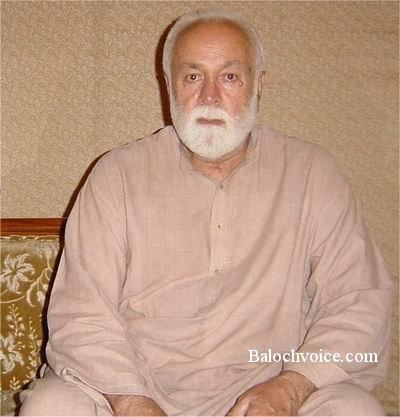
Only in September this year, the Swiss police questioned two Pakistani spies that were sent from the Pakistani embassy to harass me at a hotel in Geneva, where I was residing. They always tried to bar my entry and have pressed foreign governments and institutions to criminalise, defame and undermine my credibility by saying I was a terrorist and should not be allowed to speak on international forums regarding Balochistan. They have gone so far as to fabricate Interpol red notices on false names and presented it to the head of my NGO Dr. Charles Graves and threatened him with serious consequences if he did not revoke my accreditation with the organisation [presumably, Interfaith International].
TNS: Your father Nawab Marri stood for autonomy but you have abandoned his idea?
MB: He has always advocated the restoration of a sovereign and independent Balochistan and we are pursuing exactly his path and vision.
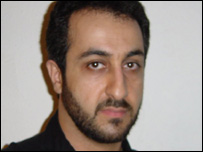
TNS: You too are a product of the sardari system, its beneficiary and sitting abroad while the ordinary people suffer?
Khair Bakhsh Marri
MB: Yes I hail from a sardari system but that should not be held against me. I am proud to be the son of a renowned Baloch patriot, Nawab Khair Bakhsh Marri, who has sacrificed his life and confronted consecutive military dictators for the betterment of the Baloch nation and never bowed before the enemy to gain personal privileges and wealth. We should indeed be acknowledged for remaining committed to our nation and determined to ensure their welfare and dignity. In my view, a genuine sardar should be a representative of his people, not the Punjabi-Pakistani establishment.


